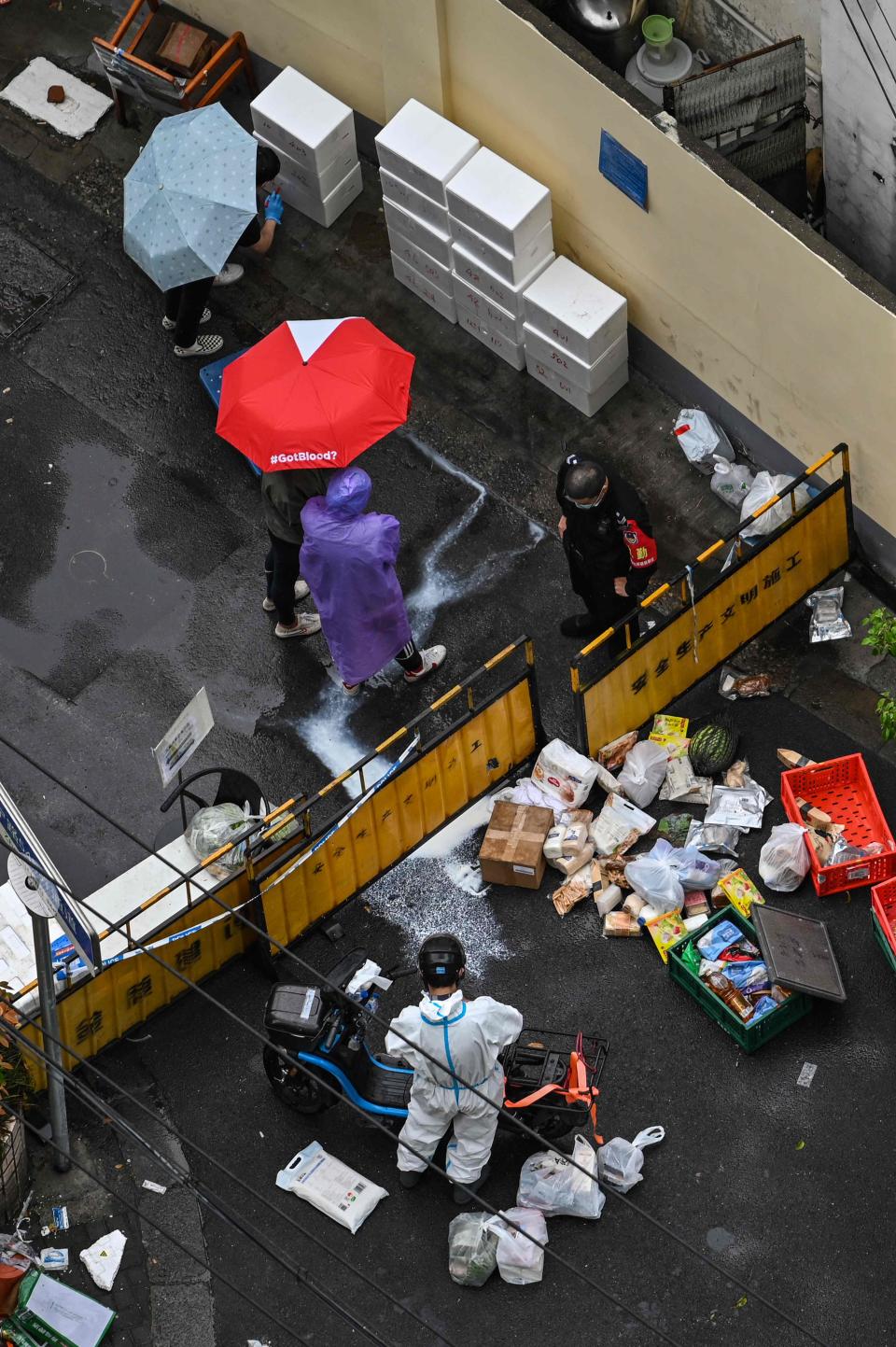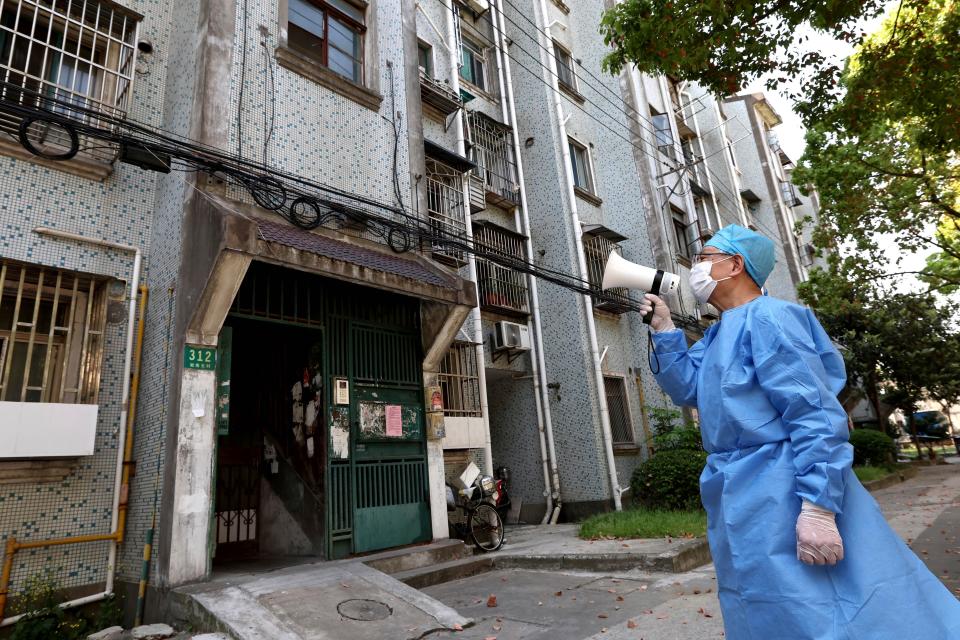Shanghai installs metal barriers to seal off streets, residential buildings to contain COVID outbreak
Authorities in Shanghai have installed metal barriers around the city to seal off streets and entrances to residential buildings to try to contain an outbreak of COVID-19.
The barriers, primarily made from mesh fences or thin sheets of metal, were put up to block small streets and entrances to apartment complexes where coronavirus-positive cases were reported, according to Caixin, a Chinese business media outlet.
The barriers were erected under direction from local government authorities, the outlet reported. Small openings were left for pandemic workers to pass through.
Shanghai, which has a population of about 25 million, has been under a lockdown since March after China's largest outbreak of COVID-19 since 2020.
Videos on social media showed frustrated citizens in Shanghai yelling at workers constructing the barriers, including one video depicting residents tearing down a mesh barricade.

What is happening in Shanghai? Explaining the ongoing citywide COVID lockdown
The omicron variant has driven the outbreak in China, and Shanghai has been hit the hardest, largely with asymptomatic cases. The city reported 51 deaths among COVID-19 patients Sunday, up from a record high of 39 the day before, the local government reported Monday.
During the lockdown, citizens in the Shanghai are required to stay at home and can leave the city only with a negative PCR test. Public transportation has been suspended and grocery stores are closed, leaving residents to order food or wait for government drop-offs.
Those who test positive are taken to quarantine in temporary hospitals until they test negative twice.
City residents have spoken out against the living conditions created by the lockdown in social media posts, reporting food shortages and detailing the struggle to access medical care while confined to their homes.
Censors removed a video posted online Friday titled “Voices of April,” which documents the effect of the lockdowns on citizens, blocking the film and any references to it on China's internet. Part of the video plays audio of residents protesting on April 8, chanting: "Send us food! Send us food! Send us food!”
Beijing residents scramble after mass testing announcement
Meanwhile, in Beijing, authorities announced it would begin mass testing starting Monday in Chaoyang, the city's biggest district. All 3.5 million residents will have three rounds of testing this week; the district accounted for the majority of new cases reported in Beijing over the weekend.
After the announcement, panicked residents flocked to grocery stores Sunday night to stock up on essentials, fearing a lockdown similar to Shanghai's.
China has taken a "zero-COVID" approach to addressing the pandemic since it began, focusing on large-scale lockdowns, travel bans and blanket testing of citizens.
Another 45 Chinese cities are under some sort of lockdown, according to NPR. In early April, many of the severe lockdown measures were lifted in some of those cities as cases waned, but residents of Shanghai have not been able to leave their communities since March 28.
In Hong Kong, the government announced last week that vaccinated nonresident travelers will be allowed to fly into the city again starting May 1, provided they supply a negative coronavirus test.
Contributing: The Associated Press

This article originally appeared on USA TODAY: Shanghai COVID lockdown: metal barriers installed; Beijing testing

